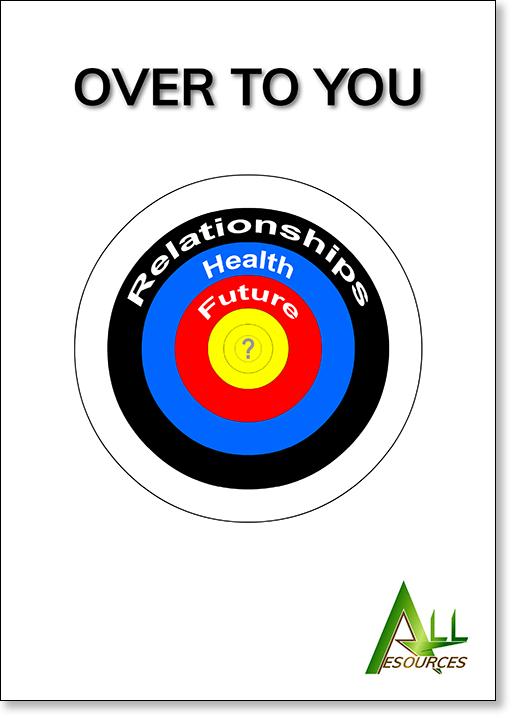Assertiveness

Over to You
A valuable PSHE resource pack covering self-esteem, motivation, confidence and self-awareness — a comprehensive trainer manual containing workshops and worksheets.
- Age range: 12 years and upwards
- Category: Schools
- Last revised: 2022
- Pages: 190
- Illustrated throughout
Hard copy: £49.99 add to basket
What is Assertiveness?
Assertiveness is about ‘getting things done’ while being fair to yourself and others. It is one of the social skills that ensures the rights of others are respected and by dealing with people assertively, you are better equipped to handle many situations calmly and professionally.
Assertiveness is a way of behaving which enables you to express your thoughts, feelings and opinions freely while at the same time encouraging others to do the same.
It is a positive form of behaviour which can help resolve conflict, thereby diffusing a volatile situation.
Learning to communicate assertively involves expressing thoughts and feelings in a direct, honest, and appropriate way. Assertiveness entails being open and direct about your views, actively listening to other people’s opinions, and being willing to compromise.
Three Ways of Behaving
There are basically three main ways of behaving and responding to situations:
- Aggressively
- Passively
- Assertively
Aggressive Behaviour
An aggressive person usually ignores the rights of others, and is interested in getting their own way. This behaviour can involve putting people down and making them feel stupid and worthless, and it can also involve sarcasm.
Passive Behaviour
A passive person does not usually speak their mind but will put up with a situation that makes them feel uncomfortable. They apologise even when they are not in the wrong. They will even apologise for their own views and will not stand up for their rights or beliefs.
Assertive Behaviour
An assertive person puts their opinion across without trampling on the rights of others. They are clear about what they want, they are firm, positive, in control and are honest with themselves and others. By using assertive techniques, they show they are prepared to listen to the viewpoints of others, are open to discussion and are prepared to compromise if necessary.
Developing Assertiveness Skills
To start to act assertively, you need to examine how you behave in a variety of situations. Can you remember a time when you were angry and out of control? What happened to make you feel this way? Analyse your behaviour. Did it help the situation or make it worse? How could you have reacted in an assertive way? Would assertiveness have helped the situation? What happened in the end? What can you learn from this?
How to be Assertive
By examining the way we react, we can learn better ways of dealing with situations. We can learn a new way to behave. We can think first, weigh up the options open to us, make an informed decision and stay in control — this is assertive behaviour. Being assertive is a skill that can be developed and improved throughout your life.
Assertiveness is closely linked to self-esteem, confidence and self-awareness. It is important that young people understand how to behave assertively so that they can voice their opinions without trampling on the rights of others. Our PSHE resource packs help them to develop assertive communication and key skills to handle difficult situations confidently and assertively.


